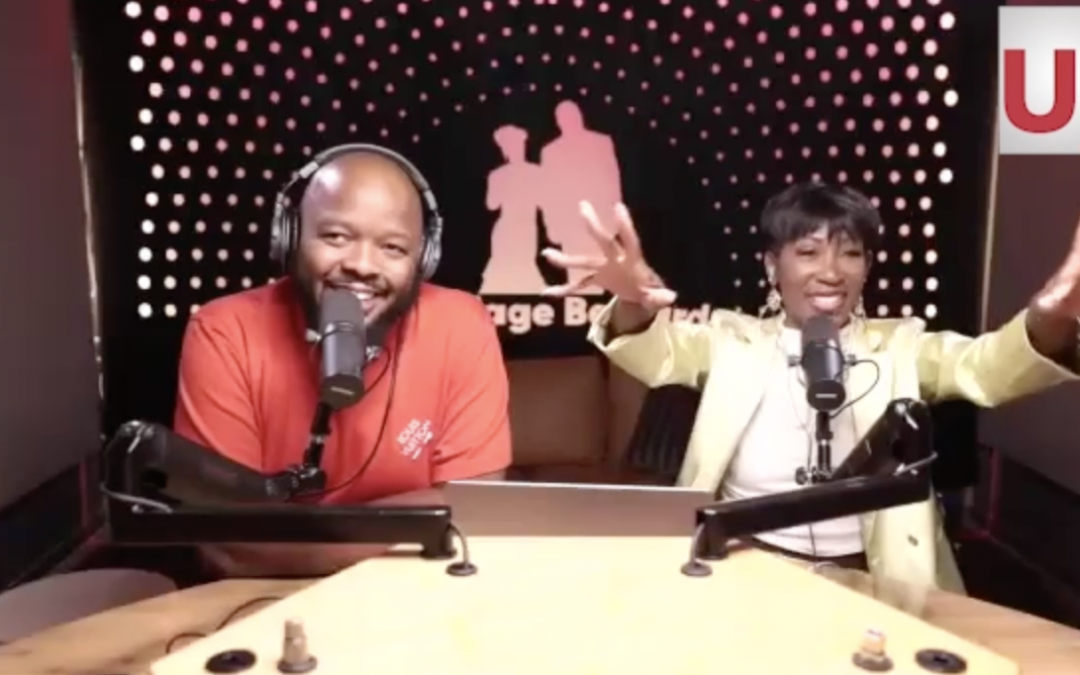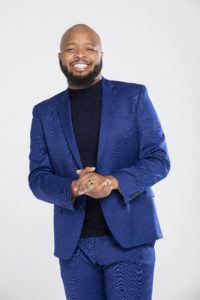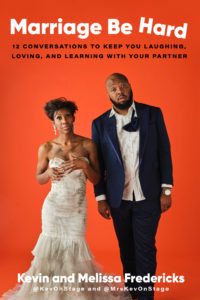
by Brittany & Allen Reynolds | Sep 25, 2023 | Commentary, Headline News, Magazine, Relationships |

As a young married couple, we have several friends who are still single and many who are in relationships wanting to be married. Many of our friends ask us for advice on their relationships. How do you know when your significant other is the right one? How do you move forward from single, to engaged, to married? What is your advice for the difference? How do you navigate your relationship in healthy ways? We don’t have all the answers, no couple does. Each relationship is unique. But we agree one of the most important skills and principles we think is core to marriage is adaptability. When we get married, we must adapt in ways we are often not taught prior to being married. Here are 4 ways we see adaptation as key to moving from relationship to marriage for those who want to be married.
1. Your mindset must adapt
From the time most children can reason they are being shaped with expectations for what romantic relationships should be. Parents, peers, and popular culture shape our mindsets for better or worse. Many of those mindsets are unrealistic and toxic. When we have serious relationships as adults, we do not have a sense of what marriage is really like or what it should be like. Many of us expect our spouse to do what we want, agree with us about big and small plans, be present with us for everything we find important, and generally not exhibit any human flaws. Moreover, we expect them to think like us. And this is a big area of necessary adaptation. It does not matter how much or how well you communicate (and most of us don’t do that well), your partner is an entirely separate person from you who will think differently than you. You must adapt your expectations with humility and grace to thrive in sustainable ways. For example, you know that people should ask if you are hungry when they get something to eat. You believe that is what loving spouses do. But your partner may have been raised to believe you speak up if you want someone to get you something to eat. You can avoid a lot of arguments by first discussing this difference and then allowing that each person will not get the action “asking if you are hungry” right even if you talk about it 10 times. It may take two conversations for them. It may take 27. It doesn’t make them bad spouses. It doesn’t make them uncaring. They may get better in the future. They may not. In either case, they will think the way they think, not the way you think.

2. Your heart must adapt
Opening our hearts is a challenging task. It was much easier when we were younger, just venturing into the world, filled with enthusiasm to embrace everything life offered. During our adolescent and young adult years, navigating through life seemed effortless. We were influenced by social media, television shows, and the experiences of our elders and communities, all guiding us on how to coexist with our significant others or what society deemed as finding a “successful” partner. We internalized notions about the ideal height of our spouses, the number of children they should have, and the careers they should pursue. We even hesitated to consider anyone who didn’t meet these expectations. Consequently, societal influences and challenges compelled us to guard our hearts, never settle, and cling tightly to our preconceived ideas of the perfect spouse. Now, understand me; having personal boundaries and standards is healthy. However, the problem arises when our expectations become unrealistic and hinder our ability to form deep connections and intimacy with our partners. Some of us may find ourselves grieving over unmet expectations that arose when we initially began dating, got engaged, or entered marriage. Our partners may face career setbacks that limit our financial freedom, or one partner may not share the same desire for the number of children they may have together. Reality may not align with the idealized image we envisioned in our minds and hearts. This fear can cause us to retreat inwardly, creating a sense of distance from one another. However, when we choose to let go, we open space for love to find its way into our lives. Letting go involves recognizing our agency, embracing vulnerability, and granting ourselves the opportunity to receive love, even when it may bring difficulty. Opening our hearts to the intricate complexities of marriage can be terrifying, but relinquishing unrealistic expectations is essential for growth in our relationships. It demands intentional effort from both partners and a willingness to release our fears, allowing genuine and unfiltered love to flourish. Let go of the burden of expectations and embrace one another for who you are, remembering that love can overcome fear.

3. Your behavior must adapt
We behave in ways that are consistent with our context. Our behavior is one of the most adaptable things about us as human beings. We are very good at adapting our behavior to new schools, new jobs, new organizations, new friends, and new situations but sometimes we have a hard time adapting to our romantic relationships. We feel like we shouldn’t have to adapt to our spouse. They should accept us for who we are. But as followers of Jesus, we should be willing to change how we behave as an act of love. If we know our spouse is allergic to a certain food, we wouldn’t cook it for them just because we like it. We might make a separate version for ourselves or make something entirely different. Adapting what we would normally do to show care for our partner is an act of grace. This does not mean we need to conform to all our partner’s desires. They won’t conform to ours either. But if we yell to express our anger because that’s the way we were raised, and our partner hates yelling because they grew up in an abusive house, we should find a way to express ourselves without yelling. We can always change our behavior and our spouse can work on changing theirs. We can only work on ourselves they must work on themselves.
4. Your plans must adapt
The concept of sacrifice in relationships often triggers resistance. It brings to mind feelings of pain and discomfort, especially when we have meticulously planned our lives through spreadsheets, vision boards, and journals, envisioning how they should unfold in the coming years or even decades. But what happens when those carefully constructed plans are unexpectedly threatened or fall apart? How do we navigate the decision to uproot our lives or relocate across the country for the sake of our spouses or families when we are happy, successful, and settled? Or how do we cope when an unforeseen injury or illness disrupts our envisioned future for our families? In such moments, whether to embrace or reject the idea of sacrifice becomes increasingly crucial. Sacrifice is undeniably challenging; it may be one of life’s most difficult lessons and being in a relationship can make this concept even more difficult. Most would likely choose the former if given a choice between experiencing life without pain, challenges, and uncertainties or enduring a painful journey with inevitable bumps and bruises. However, the truth is that without sacrifice, joy cannot fully exist in our relationships. During those difficult moments of sacrifice, the presence of joy serves as the adhesive that holds our relationships together. Maintaining open and honest communication during the process is crucial, as it keeps both partners informed about each other’s feelings and helps them adapt to the changed plans. Engaging in weekly check-ins with your spouse can be particularly helpful, as they allow each person to express their emotions and articulate their needs without the fear of judgment. By fostering a safe space for open dialogue, couples can navigate the challenges of sacrifice while maintaining a solid and connected relationship. We are each responsible for our own feelings, not our spouse’s feelings. But being aware of how our partner is coping during challenging transitions enables us to meet each other’s needs in healthy ways and intentionally throughout the week. Consistently practicing this awareness and consideration is crucial in building connection and intimacy, particularly during difficult moments faced together. By actively supporting and understanding one another, a solid foundation is created, and bonds are strengthened while navigating the ups and downs of life as a team.
by Jelani Greenidge, Urban Faith Contributing Writer | Feb 13, 2023 | Commentary, Headline News, Relationships |

Loving bravely is risking great personal cost to do good for someone, even when you know that others may ridicule you for doing so. That’s the kind of love I want to give this Valentine’s Day.
This Valentine’s Day, I’m gonna try something different. Something brave.
Brave, as in, “this-year-I-will-forgo-typical-expressions-of-love-and-instead-donate-to-her-favorite-cause” bravery.
No, that’s not what I’m planning. I’m just offering that as an example. Eschewing a gift for a donation is the kind of thing that you only do when you really know somebody well, because if you’re wrong, you will pay for it. (All the married men should be nodding their heads right now.)
That’s what I mean by brave. Something unexpected that shows how much you care, something that might seem reckless, but is, in fact, very meaningful.
I have some work to do in the bravery department. Holly and I have been married for five years now, and unfortunately, I set the bar pretty high when we got engaged.
A friend of mine was the worship director at a megachurch in the area, and his band was planning on covering Beyoncé’s “Crazy In Love,” for their worship service, since they were doing a series on relationships. So he asked me in advance to write another rap for it and bust it out during the service. So I upped the ante, and with their permission ahead of time, I wrote the rap verse as my will-you-marry-me speech, and during the middle of the song, I jumped off the stage and came down to where Holly was sitting, got down on one knee, and asked her to marry me.
It was so romantic.
Afterwards, I got mad cool points for going to such a length to surprise her. Afterwards, everyone kept echoing the same sentiment: Man, that was so brave.
Far be it from me to revise, as my grandmother used to say, even a jot or a tittle from the Bible. However, if I were to bring any editorial changes to an iconic biblical passage, I would choose 1 Corinthians 13, and right after “love is patient, love is kind,” I would add a third clause: “Love is brave.”
‘Cause seriously … ladies dig bravery. And for good reason.
Think of great leading men in popular films:
• Cary Elwes throwing himself down the hill in The Princess Bride.
• Bruce Willis fighting the terrorists in Die Hard.
• Will Smith trying to express his feelings in Hitch.
These are characters who found themselves in unfamiliar territory, and against all odds, they chose to do something good to help someone else, and found themselves being stretched (or in Smith’s case, swollen and contorted) beyond capacity in the process.
These are universal themes, for sure, but the common element here is bravery: the massive chutzpah required to stare down adversity and do the right thing anyway. It’s the stuff heroes are made from.
It’s important, though, that we not get confused about what bravery is, and more importantly, what it isn’t. Being brave, for example, is not the same thing as simply going against the flow.
Awhile back, I avoided seeing a huge James Cameron blockbuster, mostly because I figured I already had a pretty good handle on how it ended (the boat sank), but also because I got tired of the hype. I just decided at some point that I’m going to be The Guy Who Never Saw Titanic, just to show up everyone else who thought it was so great.
The sad part is, I’m tempted to do the same with Avatar, even though I’ve read countless reviews and articles (including this one by UF’s Todd Burkes) that suggest that it’s a film experience worth having. It’s like I’d rather be the guy who didn’t see it, even if it means I miss out on seeing a great film.
Being contrarian is quite a marketable skill these days, because if you want to be a celebrity in today’s celebrity-saturated media marketplace, you have to do something to stand out from the rest of the pack. The quickest, easiest way to do that is to find a stance that is accepted as conventional wisdom, and then oppose it as vociferously as possible. This is why the Internet is full of people who oppose relatively normal things, like certain type faces, or even lowercase i’s next to capital letters.
(If you didn’t get that last reference, it’s ’cause you didn’t follow the link to the word “tittle” earlier. Go ahead, it’s not naughty or anything.)
This desire to stand out, in my opinion, is why former-NBA-journeyman-turned-culture-critic Paul Shirley once penned a crude diatribe suggesting that Haitian citizens are culpable for their deplorable living conditions. Even though there are points he made that I agree with, I don’t think it was a particularly brave thing to say. He was looking to get a reaction, and he got one. People will accuse Shirley of many things, but loving too much is not one of them.
Loving bravely is not just taking an unpopular stance; it’s risking great personal cost to do good for someone, even when you know that others may, in fact, ridicule you for doing so.
This is the truest essence of love, and as Christians we see it all over the Scriptures.
Consider this passage from 1 John 4:
Dear friends, let us love one another, for love comes from God. Everyone who loves has been born of God and knows God. Whoever does not love does not know God, because God is love. This is how God showed his love among us: He sent his one and only Son into the world that we might live through him. This is love: not that we loved God, but that he loved us and sent his Son as an atoning sacrifice for our sins. Dear friends, since God so loved us, we also ought to love one another. No one has ever seen God; but if we love one another, God lives in us and his love is made complete in us.
This idea of sacrificial love, of doing for others what they cannot do for themselves, is one of the foundational principles that underscore all the worldwide efforts at Christian evangelism. And evangelism, as we all know, takes on many form — some subtle, and some not so subtle. The best strategies are ones that require truth and vulnerability, but still are basic and doable.
I’m reminded of “The Best Stuff In the World Today Café,” a cool little ditty by Take 6 with a nifty analogy of evangelism imagined as a downtown restaurant:
Time for lunch, my stomach said
I left the office to get fed
I had dined at every place on Main
My appetite was ripe for change.
And there stood this old restaurant
I had never seen before
And a stranger in an apron
Came bursting through the door and said
‘Welcome to The Best Stuff In the World Today Cafe
We are all believers in a better way
We were served as customers not so long ago
Now we are all waiters, we thought you oughta know’
It’s a clever song, and given the abundance of vocal talent in Take 6, I could probably listen to them sing pages of HTML source code and still love it.
Still, I wonder … what would happen if we really tried this? What would happen if I really grabbed someone off the street on an average Sunday morning and told them, “I don’t care what you planned to do, you gotta try this Jesus thing?”
I don’t know what would happen.
And that’s why it’s such a scary proposition in real life. Maybe that person would undergo a dramatic, Paul-on-his-way-to-Damascus conversion to Christianity. Or, maybe that person would give me the stink eye and say, “Dude, get your hands off me.” That’s why it’s such an act of bravery to put yourself out there like that.
And whether we recognize it or not, this holiday that we celebrate every February 14th, the one that was seemingly invented by purveyors of greeting cards, flowers, stuffed animals, and expensive chocolates … you know, Valentine’s Day?
Its origin is rooted not in empty sentiment, but in bravery.
Consider the following, courtesy of Wikipedia:
• The name “Valentine” is derived from the Latin valens which means “worthy,” and which bears etymological resemblance to our English words “valor” and “valiant.”
• The holiday itself has roots in the Roman Catholic liturgical calendar, where it was known for centuries as the feast day of Saint Valentine
• All the romantic sentiment related to love and courtship that has been traditionally associated with this feast originated with works of art like Jacobus de Voragine’s thirteenth century Legenda Aurea (The Golden Legend) and Chaucer’s fourteenth century poem “Parliament of Foules”
• The name St. Valentine is actually an umbrella name for a number of martyred figures throughout church history, many of whom were known for various acts of kindness and bravery
• These acts include marrying and otherwise providing aid to Christians persecuted under the reign of emporer Claudius, and restoring the sight and hearing to the daughter of the jailer who subsequently imprisoned him
You put all that together, and it becomes evident that all of the sentimentality on display every year is just our society’s misguided yearning for a purer, less self-centered version of love than what we see in the movies, on television, and in gossip magazines.
It’s misguided because, sadly, we as a society keep returning to those same movies, TV shows, and gossip mags to inform our ideas of what true love looks like.
That’s why it’s incumbent on us as Christians to show, as Paul said, a more excellent way.
So this Valentine’s Day, I say be brave.
I can’t tell you what that act of bravery should be, because it’ll be different for all of us. Maybe it’ll mean being honest and really sharing feelings and issues that you would rather keep buried. Maybe it’s going out of your way to show your spouse that you love them, and doing so in the way that they really appreciate, rather than the way you happen to be good at.
Maybe it’s just stopping, out of the blue, just to say, “I love you.”
But whatever you decide, step on out there and do it.
And if it involves rapping a marriage proposal in the middle of a Sunday-morning worship service, don’t tell them I sent you.

by Peggy Hatton | Oct 4, 2022 | Commentary, Headline News, Prayers & Devotionals |

In the journey of my life, yesterday a chapter ended. Thank goodness, I didn’t get stuck but moved past my circumstances, when I was diagnosed with my first brain tumor.
I say first because there was a third time around. And each time, it was a severe blow that overpowered me and almost put me under. I have a history of brain tumors (Meningioma). Therefore, I want to share what God has done in my life, God brought me through it all.
I was a single woman working in the medical field with no expectations of bad news. I started having severe headaches, and knew something wasn’t right. A MRI was ordered and my peaceful life was impacted significantly when the doctor called me at work and gave me the results. My physician asked: “is this Peggy Hatton?” I said yes. He said “your “MRI” results revealed a large brain tumor.” I said, “what?!” I cried, wanting to scream, but had to hold it in because I was at work.
And the first thing that came to my mind was, “I’m going to die.” I notified the supervisor of my situation and let them know that I had to leave. I wasn’t any good after hearing this. I had to call my cousin to pick me up because I couldn’t drive either. I was weeping non-stop. I cried unstoppably until my face was swollen. I knew God was the only one who could help me and I prayed and talked to him saying, “Why Me Lord?” I felt the Holy Spirit respond: “Peggy, why not you? Don’t be discouraged, I will always be with you.”
God comforted me and I moved forward and had the first brain tumor surgically removed. Although I woke up temporarily blind, the surgery was successful. I was still in ICU when an optometrist came and worked on my eyes. I was so scared. Later on that day, my vision returned.
After all of the procedures, my eyes have never been the same. Today, I use numerous eye drops and visit an optometrist regularly. I accepted what I had no control over.
Years later, I started having severe headaches again and knew the brain tumor had returned. Another MRI was taken and showed it had returned with a vengeance, it was brain cancer. I prayed and put it in God’s mighty hands.
I had radiation treatment for brain cancer. Today, I am still having more treatments and is scheduled to graduated soon. None of this was easy and if I didn’t have a mustard seed of faith in God, I wouldn’t have made it.
I interacted with cancer patients and we all need encouragement, inspiration, and love. This is whyI am sharing my story to uplift others in their battles.
This illness shattered my life, caused me to become disabled, and live less fortunately financially. However, God has truly blessed me and I thank him for placing supportive saints around me.
During all my trials and tribulations, real compassionate people reached out through texts, calls, and visits. I thank God for his mercy, grace, and his angels. act of kindness and thoughtfulness was greatly appreciated.
When going through battles, everyone needs somebody. It helps so much just knowing other people care and you are not going through this alone. There is always someone in circumstances worse than yours. No matter how tough this battle has been. I never lost my faith in God, therefore I never lost a battle. I kept my head up, wiped tears, and kept moving.
Through it all, as a wounded soldier, God gave me peace that passes all understanding.
by Allen Reynolds, UrbanFaith Editor | Jul 21, 2022 | Commentary, Headline News, Relationships |

Sex is a good thing. For all human history, human beings have had sex and been aware of their sexuality. It is a fundamental function of creation to reproduce that God instituted from the beginning. But sexuality is not simply about reproduction. It is about the awareness and expression of our bodies. We are spiritual beings, but we are also natural beings. God created us that way on purpose. If we were meant to be all spiritual, we would have been created like angels, but God made us from the earth on purpose. Jesus Christ came to us IN THE FLESH, not as a spiritual principle, a vision, or a disembodied being. Jesus was circumcised on the 8th day according to Jewish law, as all Jews were. This was a sexual act with spiritual meaning that is literally at the heart of the Old Covenant. Unfortunately, as New Covenant Christians we often overfocus on the spirit and miss the fact that the New Covenant is literally made because of Jesus’ BODY broken for us and blood shed for us. It is Jesus’ humanity, not spirit that is the sacrifice that reunites us with God. The conversation is different depending on your stage of life. Believers who are married with kids need to have different conversations than single believers in early adulthood, or teenagers, or those who are divorced, or single after the death of a spouse. But regardless of our age or station in life we need to do a better job having these conversations as Christians. Here are 3 major reasons why Christians need to talk about sex.
-
God created us to be sexual beings
Every person was designed to be sexual, and that goes far beyond having sex. When God created Adam and Eve, they were meant to relate to one another sexually and their relationship to be closer than parent to child in future generations. They were naked and unashamed of their bodies (Genesis 2:24-35). There are any number of reasons why believers are ashamed of their sexuality today, many of them unfortunately from bad teaching in churches. But that is not the design of God. We were created to relate to one another sexually BEFORE sin entered the world.
-
Christian sexuality is meant to be different
A lot of our confusion, angst, shame, sorrow, and frustration with reconciling our sexuality with our faith is because of a Biblical principle that Christian sex is meant to be different than sexuality for those who don’t follow Christ. The covenant between God and Abraham made Israelite men sexually different from their neighbors in other nations (Genesis 17). The Law of Moses set up sexual limitations and regulations that were meant to distinguish Israel from other nations. The principle always pushed toward relationship with God reflected in our sexual relationships with others. The word used in scripture is holy, but to translate that our modern culture we might say intentional, purposeful difference that honors God. Paul picks up this Jewish principle in the New Testament by articulating a vision of sexual relationships that is monogamous, mutual, caring, and loving that reflect Christ’s love. We have often been caught up on the restrictions and missed the vision in the church. We have to be responsible with our sexuality because we are accountable to God in a different way as followers of Christ. We are called to be vulnerable, loving, and intentional with our sexuality in a way that is different than the world around us.
-
We should love and not fear our sexuality
1 John 4:18 reminds us that perfect love casts out all fear. The world has set false standards that promote fear, violence, and mistrust in sexual relationships. We have no need to rehearse the many ways popular culture, corporate interests, and sociopolitical forces use and abuse sexuality. Often their goals are to use sex to make money and create false intimacy. But for many believers we have been taught to fear sexuality to maintain holiness. It has caused believers to have arrested development, face shame and ridicule, leave churches, and seek unhealthy sources to define their sexuality. We rarely speak of the difficulties many newly married Christian couples face around sexual expectations, communication, and formation because of ignorance, self-rejection, and fear. We do not talk about the struggles teenagers face with loving their bodies instead of hating and fearing them. We do not deal with the choice to not have sex as young adults instead of treating sex as an uncontrollable inevitable impulse. We are afraid of the word intimate because we have been taught it is dirty. Our bodies are not beasts to be tamed. They are part of us to be loved. Paul Himself would agree with this, treating our bodies as a Temple of God means loving and tending to them with the utmost care (1 Corinthians 6:19-20). Not fearing and avoiding them as we abuse them and let them be abused by others. But Jesus loves us. He loves our bodies. He wants us to love God with our bodies just as we do with our minds and hearts. And we make sexual choices that build intimacy and protection with our romantic partner. We do not discuss the why of a holistic view of Christian sexuality which sets us up for pain before and during marriage. But we should talk about sex. We should love our bodies and our sexuality. We should define what sexual holiness means as believers in terms of what we choose to do instead of what we feel we can’t do. We should honor God’s design for sexuality by loving our neighbors as we love ourselves, sexuality included.












